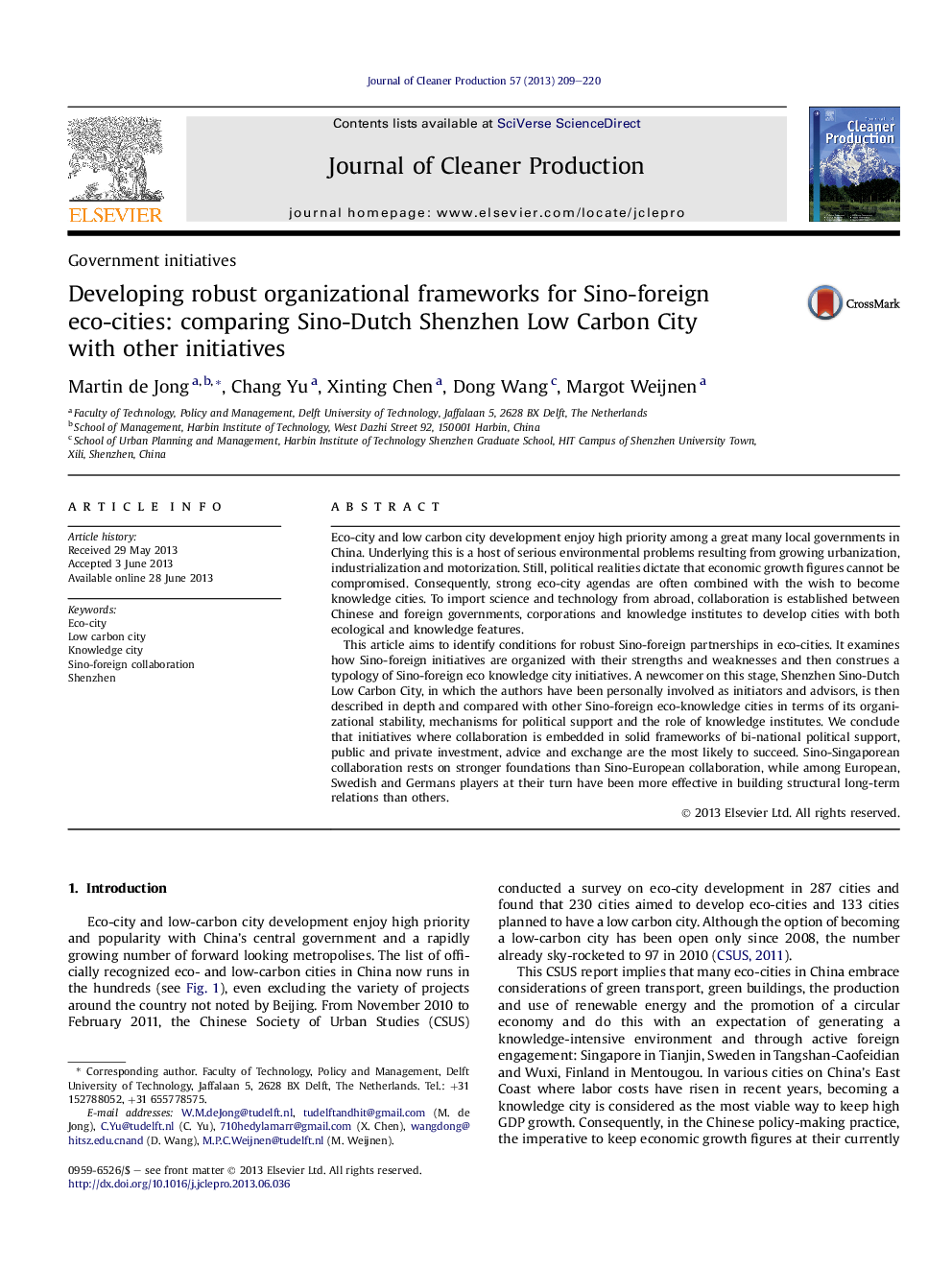| Article ID | Journal | Published Year | Pages | File Type |
|---|---|---|---|---|
| 8107483 | Journal of Cleaner Production | 2013 | 12 Pages |
Abstract
This article aims to identify conditions for robust Sino-foreign partnerships in eco-cities. It examines how Sino-foreign initiatives are organized with their strengths and weaknesses and then construes a typology of Sino-foreign eco knowledge city initiatives. A newcomer on this stage, Shenzhen Sino-Dutch Low Carbon City, in which the authors have been personally involved as initiators and advisors, is then described in depth and compared with other Sino-foreign eco-knowledge cities in terms of its organizational stability, mechanisms for political support and the role of knowledge institutes. We conclude that initiatives where collaboration is embedded in solid frameworks of bi-national political support, public and private investment, advice and exchange are the most likely to succeed. Sino-Singaporean collaboration rests on stronger foundations than Sino-European collaboration, while among European, Swedish and Germans players at their turn have been more effective in building structural long-term relations than others.
Related Topics
Physical Sciences and Engineering
Energy
Renewable Energy, Sustainability and the Environment
Authors
Martin de Jong, Chang Yu, Xinting Chen, Dong Wang, Margot Weijnen,
